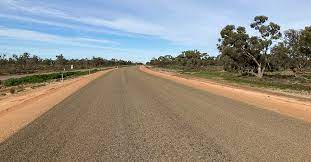"The sound of a death knell" - fury over road user charge
Luke Williams
15 May 2023, 3:40 AM
 The trucking industry says new charges will send some operators over the edge
The trucking industry says new charges will send some operators over the edge"Unconscionable," a "cruel blow," and even "the sound of a death knell for some operators" - these are some of the responses to the decision by Transport ministers around the country to hike the Road User Charge (RUC) for heavy vehicles by six percent over each of the next three years.
The new charges will start on 1 July this year.
"This level of increase is considered by ministers to strike the right balance between the need to move back towards cost-recovery of the heavy vehicle share of road expenditure and the need to minimize impacts on this vital industry," theTransport Ministers said in a joint statement.
Truckies aren't impressed - they say margins are tight and that the costs of this charge will ultimately be passed onto consumers.
The charge, which is a tax truckies pay for using roads, will increase by 2025 from 27.2 cents to 32.4 cents per litre of diesel used.
Industry spokespeople say it will not only damage operators, it will roll onto the costs of goods around the country.
Some heads of the industry say it could have been worse as, during negotiations, the Government suggested that the six percent it worked out to could be as high as 10 percent.
National Road Transport Association boss Warren Clark described the increase as a death knell for some operators.
"This is a cruel blow to operators already under extreme stress who are desperately trying to stay viable," he said, slamming the ministers' claims about striking a balance for the industry.
"In February, NatRoad called for a freeze on charges next year and for increases in the two financial years after that to be limited to 2.75 percent."

Image: Local Government NSW.
"We note that the Ministers say they've struck 'the right balance' between cost-recovery of and the need to minimize impacts on a vital industry," Mr Clark said.
"In effect, they've given a final push to those businesses that are already teetering on the edge."
The Association said For a single truck, it is not uncommon to use over 100,000 liters of diesel fuel per year. For an entire fleet, that number skyrockets.
Gary Mahon, CEO of the Queensland Trucking Association, said it's yet another cost for the industry to absorb.
"We were always going to have an increase imposed upon us, but when you take into account other increases and the fact that the excise is indexed as well, overall, it should mean the fuel tax credit remains relatively similar, and that's a good answer for the industry," said Mahon.
However, Livestock and Rural Transport Association president David Fyfe supported the rise.
"Our association has been calling for a three percent increase for several years because the expenditure on roads has been outstripping cost recovery for quite a while," Fyfe told ABC Rural.
He said he was worried that electric vehicles were not yet pulling their weight. "How will they help us fix our roads?" he said




